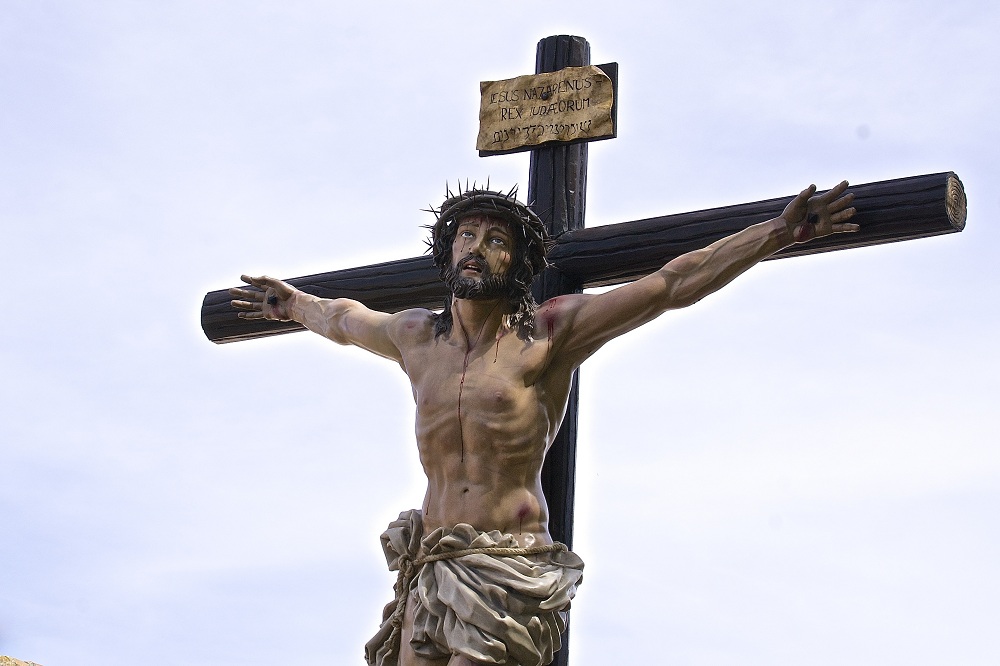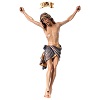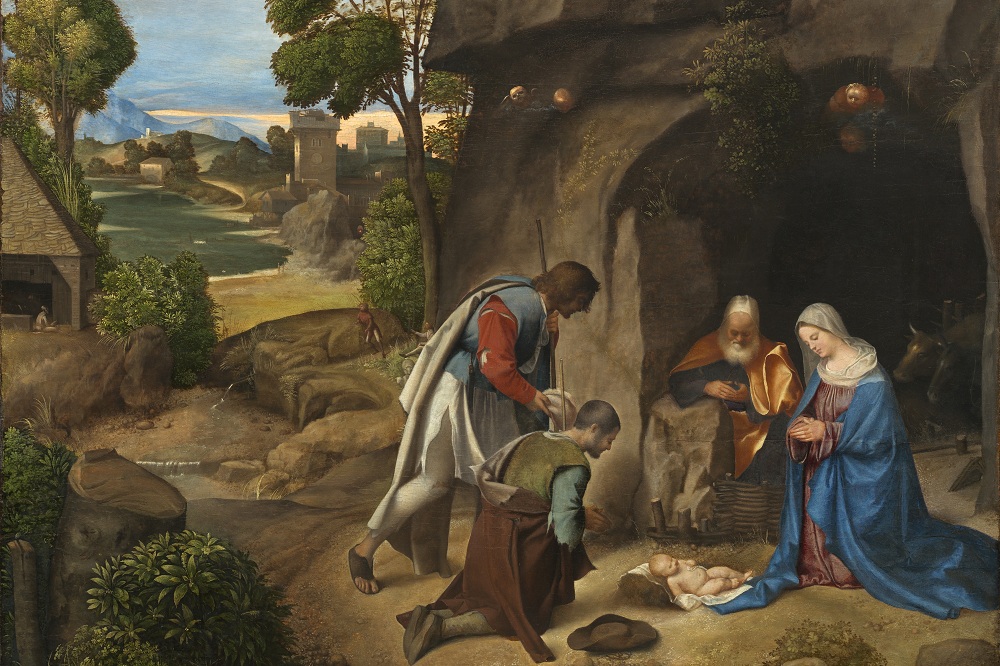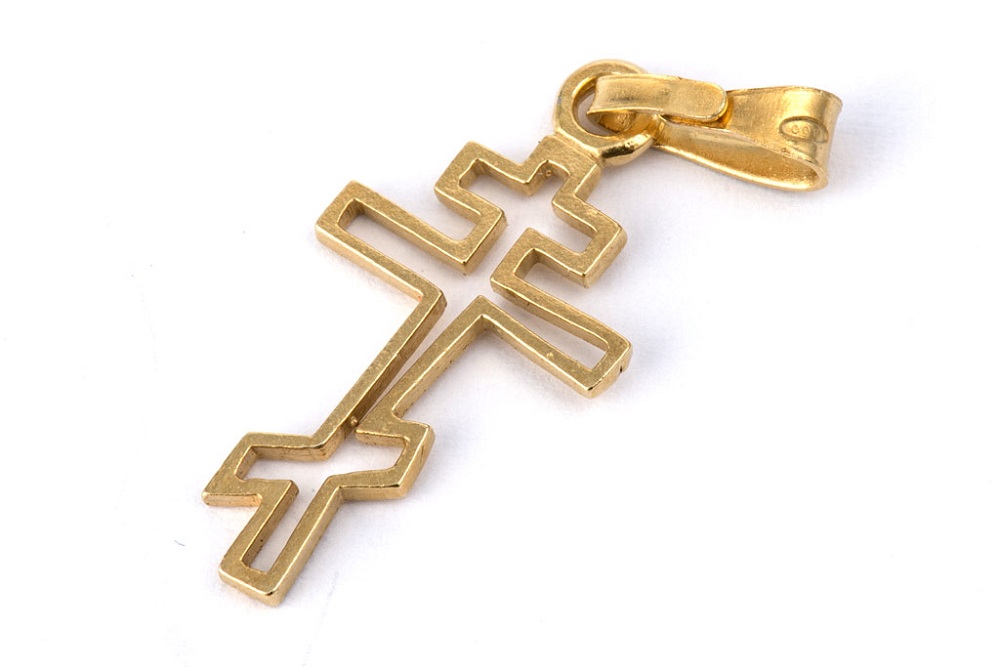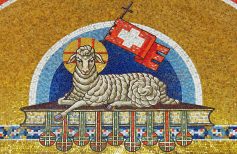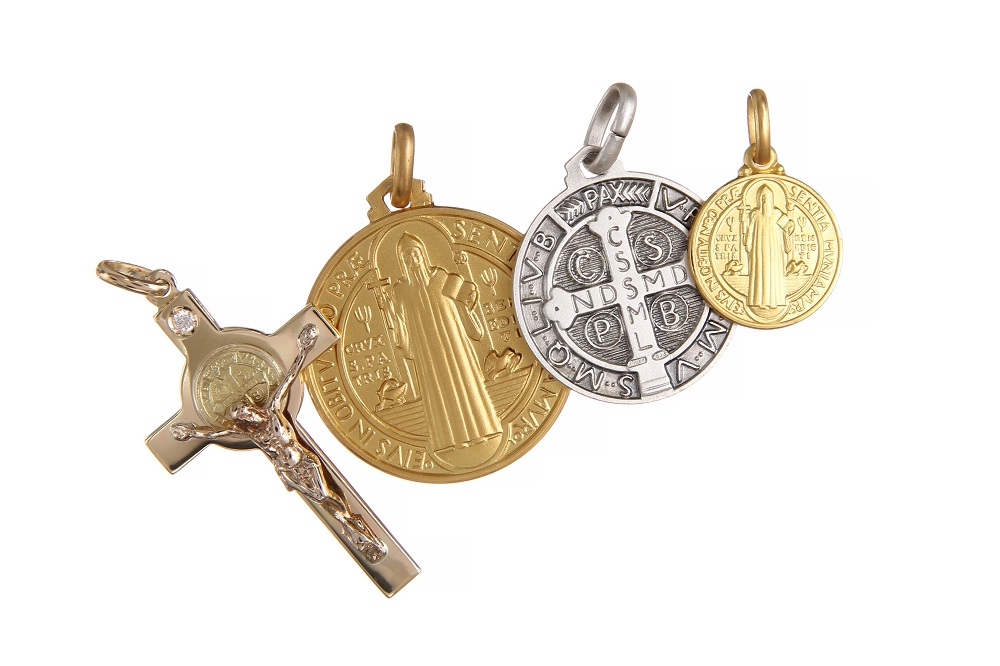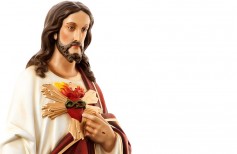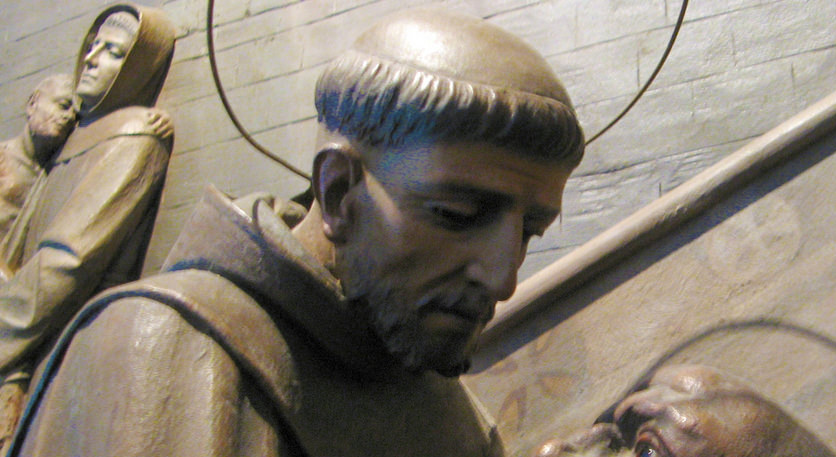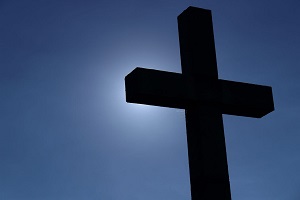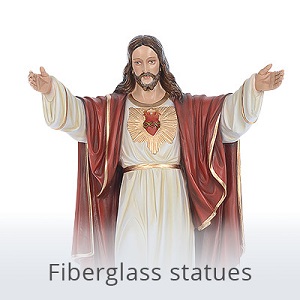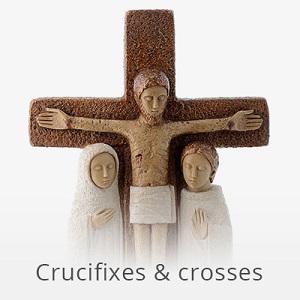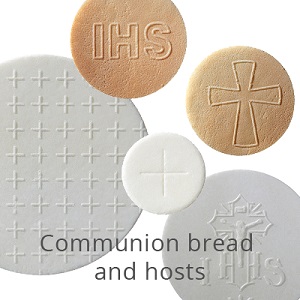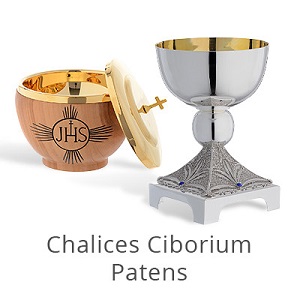The figure of Jesus on the cross represents for every Christian the symbol of love par excellence, the incarnation of his own mission of faith and life. But how can such a terrible image convey such a precious message?
Contents
It is not easy to explain this contradiction since it belongs to the church from its origins. It may seem a paradox that Christians have made the cross, the instrument used to kill Jesus, the Saviour, sent into the world by God the Father, their main symbol. Even more surprising how, beyond the powerful symbolism of the empty cross, the figure of Christ on the cross, the more or less realistic representation of Jesus crucified, has become over the centuries an even more powerful emblem of faith. It is a tortured man we are talking about, a man beaten, stripped of all dignity, mocked by those whom he had come to save, and finally killed in a barbaric, horrible way. Yet those who believe in Him cannot help but look at the depiction of His agony without feeling a surge of love.
Because this is exactly what the figure of Jesus on the cross symbolises: a merciful, gratuitous, immense act of love. It is in the mangled figure of Jesus on the cross that the destiny of humanity is fulfilled, in the renewal of that Covenant with God, frustrated by the disobedience of Adam and Eve. The blood of Jesus, his tears, cleanses man from all guilt, opening the way to salvation.

The story of Adam and Eve
Who does not know the story of Adam and Eve, the first man and the first woman? But are we really sure that we know it properly?
But how did we come to this terrible act of violence, which is perhaps the culminating moment in the history of Christianity? Who crucified Jesus?
Why Jesus was put on the cross
The story told in the Gospels and the sacred texts are known to all. Jesus was dragged before the Sanhedrin court on charges of ” blasphemy”. In fact, as we learn from the Gospels, he had spent the last few years wandering around and preaching the proclamation of God’s Kingdom. But that’s not all. Jesus claimed to be the Son of God, and, as such, to have been sent to judge men.
When the priests question him about it, He answers them without fear: “Are you the Christ, the Son of the Blessed One?”. Jesus replied: “I am! And you will see the Son of Man sitting at the right hand of the Mighty One and coming on the clouds of heaven”. The high priest tore his clothes, and said, ‘What further need have we of witnesses? You have heard the blasphemy, haven’t you?” Everyone ruled that he was guilty of death” (Mk 14:61-64).
But the condemnation by the priests would not have been enough to send Jesus to death.
Judea, where Jesus lived, was dominated by the Romans, and it was only for the Roman Empire to decide who should die or not. The Jewish religious authorities had to convince the Roman governor of the extreme danger represented by Jesus so that he too would validate the sentence. Pontius Pilate, cornered by the fanaticism of the priests, will accuse Jesus of proclaiming himself Messiah-King, questioning the legitimate authority of Rome over those lands. This is the accusation with which Jesus will be sent to die, this is the Titulus Crucis, the sign that was placed on the cross to indicate the reason for the condemnation: Jesus Nazarene King of the Jews.
What were the last words of Jesus on the cross
There are several versions in the Gospels regarding the account of the last moments of Jesus’ life. According to some modern historians, these would be insertions made by the evangelists, driven by their own beliefs, and not actual events. Naturally, the importance of the last words pronounced by Jesus on the cross could justify the will, on the part of those who wanted to tell his story and spread his message, to transform them into a sort of prophecy.
But beyond the desertions and theological motivations, the last words spoken by Jesus shortly before his death constitute for every Christian an indispensable reflection of faith.
According to the Gospel of Luke, just before he died Jesus said: “Father, into your hands I commit my spirit.” (Luke 23:46).
The other sentence pronounced by the dying Jesus is also attributed to Luke: “Father, forgive them, for they do not know what they are doing” (Luke 23:34), although not all documentary sources confirm it.
According to the Gospel of John, however, the sentence pronounced by Jesus crucified before his expiration would have been: “Everything is finished!” (John 19:30).
Other phrases are pronounced by Jesus on the cross, according to the other evangelists:
“My God, my God, why have you forsaken me?” (Matthew 27:46)
“Father, forgive them for they do not know what they are doing” (Mark 15:34)
“Truly I tell you: today you will be with me in paradise” (addressed to one of the two thieves crucified with him, Luke 23:43)
“Woman, here is your son!”; “Here is your mother!”(addressed to the Madonna and the apostle John, at the foot of the cross, John 19:26-27)
“I’m thirsty” (addressed to the Roman soldiers, who gave him vinegar to drink through a sponge on a reed, John 19:28)
It is clear how, despite the differences between the different versions of the Gospel, all the words of Jesus on the cross are rich in prophetic meanings, which will form the very basis of many aspects of the cult dedicated to him, subsequently. Because it was certainly no ordinary man who died on Calvary that day, and the consequences of that unjust sentence would change the history of humanity forever, in a way unsuspected for those who had persecuted him with such determination. Every single word suggests the profound love that animated Christ even in that moment of absolute suffering, even when he doubts that God, his Father, has abandoned him. Yet, even then, not a word of blame for his tormentors, not a condemnation for the men who are killing him. Because they do not know what they are doing, and therefore they deserve forgiveness, they deserve paradise, that paradise that Jesus gives to the world through his blood, his body, his immense sacrifice.
Why is it such an important symbol for Catholics?
We have already answered this question in the introduction, and having dwelled on the last words of Jesus has emphasised even more the profound meaning that leads the crucifix to be one of the most important and precious symbols of Christians. In the figure of Jesus on the cross, there is all the immense love of God for humanity and the remembrance of the hope of the Resurrection.
Representations of Jesus on the cross
The early Christians did not depict Christ crucified. To escape persecution they had to resort to symbols that resembled the figure of a cross on which a man was seated, such as the Greek letters tau (T) and rho (P), Or symbols taken from mythology or other religions, such as the dolphin and the trident.

Types of Crosses and their meanings
The cross is an ancient symbol, with many variations throughout time. For Christians, it is of the utmost importance.
After the recognition of the Christian religion, however, the representations of the crucified Christ immediately began to spread. Some, very ancient, have come down to us, such as the jasper gem probably of Syrian origin, dating back to the 2nd century AD, engraved with the figure of a naked man with his arms tied to the transverse arm of a cross, or the box of ivory kept in the British Museum in London which dates back to 420-430 AD and depicts the crucifixion, just to name a few.
The evolution of art forms, as well as of the church, with its vicissitudes, led to a distinction of the iconography of the crucifix that continued to change over time. Even today, however, the image of Christ on the cross is the subject of pictorial and artistic representations of all kinds, from Russian and Greek icons, typical of the Eastern Church, to statues and bas-reliefs, to Eucharist-carrying cases. And, of course, crucifixes and pendants of every material and size, to be worn or displayed in your home, to always carry with you and always have before your eyes the symbol of our Lord’s sacrifice of love.

